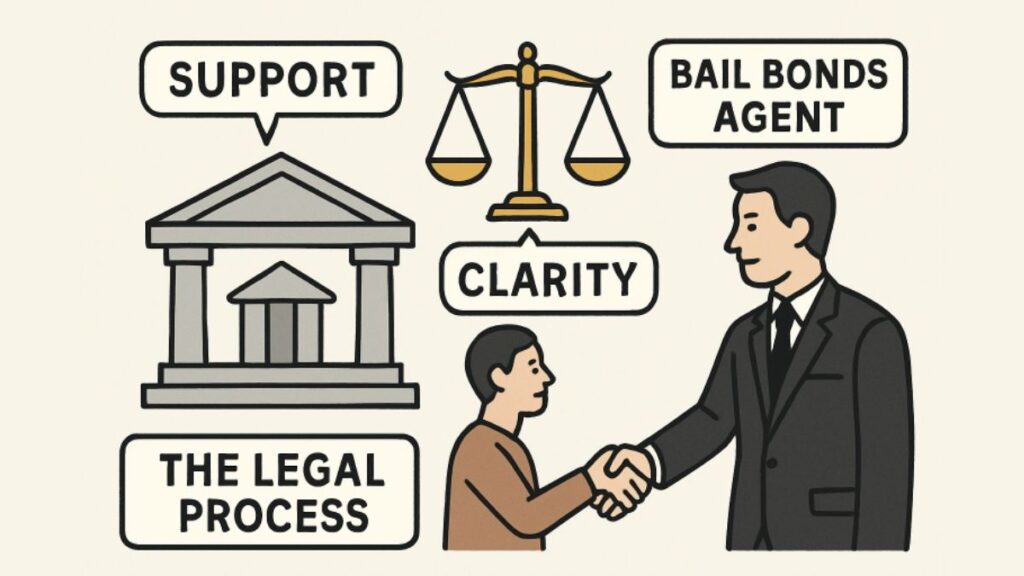Understanding the bail bond system is essential for anyone who finds themselves or a loved one involved with the legal process. Misunderstandings and myths can not only make a stressful situation worse but may also result in costly mistakes. If you or someone you know is seeking advice about Susquehanna County bail bonds, clearing up common misconceptions can help ease anxieties and support better decision-making.
The bail bond process is frequently misunderstood, with myths circulating about who can utilize these services, how much bail bonds cost, and what powers bondsmen actually hold. By separating fact from fiction, defendants and their families can approach the legal system with increased confidence and clarity.
Bail bonds play a crucial role in making the judicial process more accessible. They enable community members to resume work, care for their families, and participate in their legal defense—all while preparing for upcoming court dates. Whether your case is minor or more serious, knowing how the system works can relieve unnecessary stress and financial strain. Seeking the assistance of a reputable bail bond provider can mean the difference between prolonged incarceration and rebuilding your life while awaiting trial.
Myth 1: Bail Bondsmen Can Negotiate Bail Amounts
A common misconception is that bail bondsmen have the authority to negotiate or lower bail amounts determined by the court. In truth, only judges can set or change bail. A bondsman’s role is to post bail on the defendant’s behalf for a fee, offering a pathway out of custody once the amount has been determined. All negotiations regarding bail must occur between the defense, the prosecution, and the judge, not with the bail agency. However, discussions about cashless bail and its potential impact on the system have emerged in recent years, with coverage from outlets like ABC News highlighting executive orders and proposals that could reshape how bail is handled.
Myth 2: Bail Bonds Are Only for Serious Criminals
People often believe bail bond services are exclusive to those accused of severe crimes. However, bail is commonly available for a range of offenses, including relatively minor charges such as traffic violations or misdemeanors. Bail bonds intend to ensure the defendant’s return to court, regardless of the crime’s severity. Therefore, individuals accused of minor offenses often benefit from bail bond services.
Myth 3: You Must Pay the Full Bail Amount Upfront
Another widespread myth is that the defendant or their family must pay the total bail sum in cash to secure pretrial release. In reality, bail bond companies typically charge a non-refundable fee, usually around 10% of the bail, allowing defendants to regain their freedom without liquidating assets or securing large loans. According to Investopedia, this system provides a practical alternative for individuals who might otherwise struggle to meet full bail amounts, making the bail process far more feasible and accessible for most individuals and families.
Myth 4: Bail Bonds Are Unaffordable for Most People
While bail amounts can be significant, using a bail bond agency makes pretrial release possible for people from diverse financial backgrounds. Bail agents offer payment plans and flexible options, reducing immediate out-of-pocket expenses. This financial flexibility allows individuals to focus on preparing their defense rather than worrying about raising the full bail amount overnight.
Myth 5: Bail Bondsmen Are Predatory and Untrustworthy
Despite negative stereotypes, reputable bail bond businesses operate with professional ethics and in compliance with state regulations. Good bail agents provide clear explanations, reasonable payment terms, and ethical practices. It’s wise to research, read reviews, and compare agencies to ensure you’re working with a licensed, trustworthy professional—just as you would with any other primary financial service provider.
Myth 6: Posting Bail Means Complete Freedom
Getting out on bail doesn’t mean a defendant can do as they wish. The court often imposes several conditions, such as no travel outside its jurisdiction, regular check-ins, and no contact with specific individuals. Violating any conditions may result in re-arrest, forfeiture of bail, and further legal troubles. The bond only guarantees release under strict court-mandated rules until the case resolves.
Myth 7: Bail Bondsmen Can Negotiate Bail Amounts
The belief that bail bondsmen can go to bat for you and lower bail with the court is simply false. The court fixes the bail schedule, and while defense lawyers can argue for adjustments, bail agents can only work within those limits, ensuring you’re released according to court terms and not as a result of side deals or negotiations.
Myth 8: Bail Bonds Are Unaffordable for Most People
It’s a common fear that bail bonds are simply out of financial reach. In reality, the industry is explicitly designed to make bail attainable for more people. By charging a 10% fee rather than requiring clients to pay the entire bail amount, families can access the legal support they need without financial devastation. Many agencies provide tailored solutions to match individual financial situations.
Understanding the realities of the bail bond process can give families and defendants peace of mind during challenging legal scenarios. Dispelling myths leads to better decisions, reduces anxiety, and helps make the best of a difficult situation.






